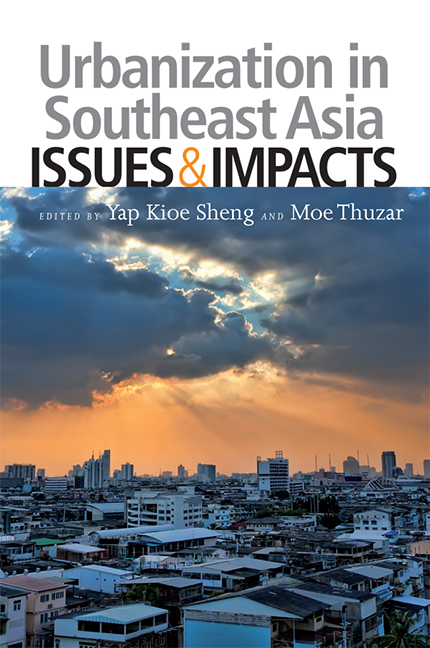Book contents
- Frontmatter
- Contents
- Message from Head, ASEAN Studies Centre
- Message from Director, Centre for Liveable Cities
- About the Contributors
- Introduction
- Urbanization in Southeast Asian Countries: Recommendations
- 1 The Challenges of Promoting Productive, Inclusive and Sustainable Urbanization
- Cities as Engines of Development
- 2 ASEAN Transport Policy, Infrastructure Development and Trade Facilitation
- 3 Competitive Cities and Urban Economic Development in Southeast Asia
- 4 Public-Private Partnerships and Urban Infrastructure Development in Southeast Asia
- 5 Regional Cooperation and the Changing Urban Landscape of Southeast Asia
- Inclusive Cities
- Cities and the Environment
- Governance, Decentralization, and Urbanization
- Urbanization from an ASEAN Perspective
- Index
4 - Public-Private Partnerships and Urban Infrastructure Development in Southeast Asia
from Cities as Engines of Development
Published online by Cambridge University Press: 21 October 2015
- Frontmatter
- Contents
- Message from Head, ASEAN Studies Centre
- Message from Director, Centre for Liveable Cities
- About the Contributors
- Introduction
- Urbanization in Southeast Asian Countries: Recommendations
- 1 The Challenges of Promoting Productive, Inclusive and Sustainable Urbanization
- Cities as Engines of Development
- 2 ASEAN Transport Policy, Infrastructure Development and Trade Facilitation
- 3 Competitive Cities and Urban Economic Development in Southeast Asia
- 4 Public-Private Partnerships and Urban Infrastructure Development in Southeast Asia
- 5 Regional Cooperation and the Changing Urban Landscape of Southeast Asia
- Inclusive Cities
- Cities and the Environment
- Governance, Decentralization, and Urbanization
- Urbanization from an ASEAN Perspective
- Index
Summary
In Southeast Asian countries, urban areas have been developed with rapid economic growth and expansion of population. The economies of the Association of Southeast Asian Nations (ASEAN) experienced an average growth rate of 5.9 per cent between 2003 and 2008 (ASEAN Secretariat 2009). The total population of the region in 2008 was about 580 million and was projected to rise to 650 million by 2020, with more than half living in urban areas (United Nations 2007). The urban population in the region has been steadily increasing from 31.6 per cent of the total population in 1990, to about 47 per cent in 2008 (ASEAN Secretariat 2009). However, due to the rising population in major cities, the development of urban infrastructure and public services such as sewage systems, wastewater treatment facilities, and public transportation networks, has been inadequate and these services have become less effective, causing serious problems to the quality of life of residents, and obstructing sustainable growth of the ASEAN countries.
Since the introduction of decentralization efforts in several ASEAN countries in the 1990s, many local governments have been responsible for the delivery of urban services. However, their financial and administrative autonomy remains a challenging issue. The ability of local governments to raise revenue and provide adequate services continues to deteriorate as city populations grow, while their administrations are still trapped in bureaucratic traditions and lack capable staff.
Facing budgetary constraints and recognizing their inability to provide infrastructure services efficiently, governments in many countries have been rapidly adopting neoliberal approaches and a market-based economy. This has led to radical changes in the characteristics and respective roles of the public and private sectors. Coping with the new market economy requires governments to reduce the size of the public sector and give a greater role to a more dynamic private sector under public-private partnership schemes.
The purpose of this chapter is to identify issues and challenges in the area of public-private partnerships for infrastructure provision and finance at the urban and national levels in Southeast Asia. More thought will be given to discussing essential features of the regulatory and legal frameworks required to support public and private sectors to deliver urban infrastructure services effectively.
- Type
- Chapter
- Information
- Urbanization in Southeast AsiaIssues and Impacts, pp. 139 - 153Publisher: ISEAS–Yusof Ishak InstitutePrint publication year: 2012

